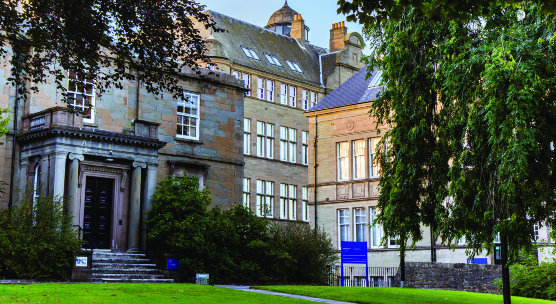The State of Europe and the European Union: From War to Peace... to Peacemaker?
Published On Tue 5 May 2015 by Roddy Isles

The challenges posed to the European Union both as a peacemaker in the wars outside its borders and by the rise of extremism and xenophobia within its own member states will be explored at a Europe Day lecture by Dr Rama Mani at the University of Dundee on Saturday May 9th.
The public lecture is being hosted by the University’s European Institute for Security and Justice (EISJ), which is a Jean Monnet Centre of Excellence.
Dr Rama Mani is Senior Research Associate at the Centre for International Studies at the University of Oxford. Her lecture, and this year’s Europe Day, comes at a time when the European Union is facing considerable challenges.
The centenary of World War I and the 70th anniversary of the end of World War II and of the Nazi Holocaust offer a chilling reminder that Europe was the epicentre of a century of bloodshed and genocide. The awarding of the 2012 Nobel Peace Prize to the European Union signalled the long journey that has been made from the killing fields of the first half of the 20th century to the stable democracies of the 21st century.
Only three years after the award of that Nobel Prize the EU finds itself facing conflicts on several of its frontiers, including the dangerous and rising tension with Russia over Crimea and Ukraine, and a situation where Turkey, an EU hopeful and NATO member, is embroiled in the multiple conflicts in the Middle East and increasingly at loggerheads with its NATO and European allies as the battle against Islamic State unfolds.
In her talk on Europe Day, Dr Mani will not dwell on the successes of the EU, which are very well documented and known, but rather will address the crucial questions arising from the current situation.
Is the European Union losing its erstwhile status as a neutral and effective peacemaker and, with rare exceptions, wielding increasingly less influence in the major conflicts pockmarking the globe?
And with nationalist right wing parties creeping increasingly into the European Parliament itself and an anti-European sentiment seizing many European citizens, can the EU meaningfully reassert its values of peace, tolerance and democratic freedoms? And if it does not do so, what will the future bode for the European Union and for its increasingly diverse and restive inhabitants?
What must the EU do to become a more effective peacemaker both at home and abroad and merit being seen as a deserving Nobel Peace Prize laureate in the years to come?
Dr Mani’s lecture takes place at 6pm on Saturday May 9th in the D'Arcy Thompson Lecture Theatre, Tower Building, University of Dundee.
Admission is free and all are welcome to attend.
This public lecture is organised with the support of the Lifelong Learning Programme of the European Union.
Roddy Isles
Head of Press
TEL: 01382 384910
MOBILE: 07800 581902
E-MAIL: r.isles@dundee.ac.uk